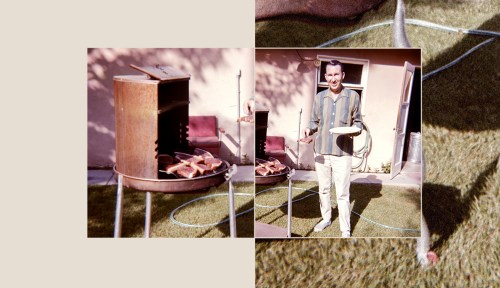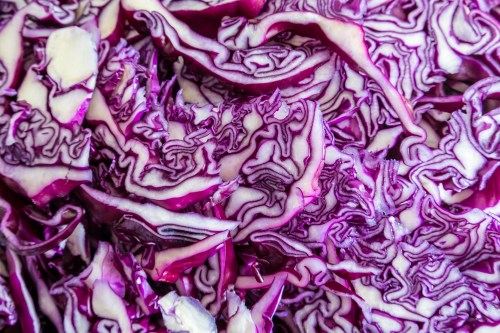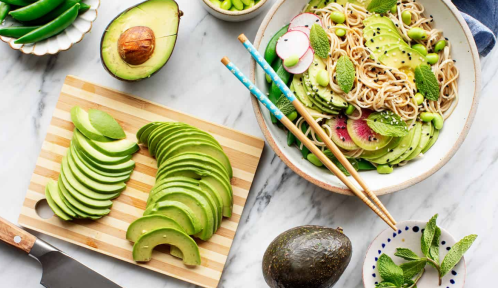Our editors independently select these products. Making a purchase through our links may earn Well+Good a commission
As the saying goes, sun’s out, buns out. Within the context of summer food, we’re talking about hamburger and hot dog buns, of course, with meat (and fish, and veggies, and so on) grilled to juicy, mouth-watering perfection.
Experts in This Article
I’m the editor and publisher of GirlsCanGrill.com, an online magazine dedicated to sharing grilling tips and recipes to encourage more people to get outside and grill. I’m also the pitmaster for KCBS Team Girls Can Grill.
Emily Contois, PhD, MPH, is an assistant professor of media studies at the University of Tulsa and the author of Diners, Dudes, and Diets: How Gender and Power Collide in Food Media and Culture. Her research explores food, the body, health, and identities in contemporary U.S. media and popular culture. She’s Chapman Assistant Professor of Media Studies at The University of Tulsa, author of Diners, Dudes & Diets: How Gender & Power Collide in Food Media & Culture, and co-editor of Food Instagram: Identity, Influence & Negotiation.
Now, when we think of home barbecues, recurring pictures and terms tend to come to mind—such as a group of guys drinking beers and flipping steaks over the flames, or a father (specifically Tony Soprano… just me?) “manning the grill” for a weekend family dinner. Which brings me to my next point: Why are men nearly always front and center in these depictions, and why is grilling still largely thought of as “a man’s job,” even in 2023?
According to Emily Contois, PhD, MPH, an assistant professor of media studies at the University of Tulsa and the author of Diners, Dudes, and Diets: How Gender and Power Collide in Food Media and Culture, this wasn’t always the case. Citing interdisciplinary research in this field, she says that the concept of grilling or barbecuing as a masculine endeavor was invented in the early 20th century. “Before then, it was quite common to see such recipes in 19th-century cookbooks intended for women,” says Dr. Contois. “Yet as women gained more social, political, and legal rights, food and cooking—somewhat counterintuitively—emerged as areas of culture and daily life where gender norms became even more firmly entrenched.”
In the first half of the 20th century, women not only gained the right to vote but also entered the workforce in record numbers during World War II. Between 1940 to 1945, women in the workforce rose from 27 to 37 percent—and by 1945, nearly 25 percent of married women in the U.S. worked outside of the home. Yet in the post-war era, such gains were trumped by dated ideas and a cultural shift to return back to “the way things were” as far as domesticity was concerned. (See: The stereotype that a woman’s place is in the kitchen, the romanticization of women as mothers and homemakers first and foremost—especially after they were “no longer needed” in the workforce after World War II—and so on.)
Enter the 1950s, during which suburbanization and the ideal of the nuclear family took hold. “This decade is most associated with the cultural rise of grilling and backyard barbecues in the U.S.,” Dr. Contois says. “In the years after World War II, as suburban life proliferated—though largely limited to white families—the grill emerged as a home food space for men, where they could simultaneously perform masculinity and familial domesticity.”
Moreover, Dr. Contois explains that grilling was constructed as “different than and separate from the ‘feminized’ everyday cooking of women”—which involved the less exciting, more dainty tasks such as dessert, salad, and side dish prep and focusing on the family’s nutritional needs. And to add insult to this major diet culture injury, we would be remiss to ignore the fact that meat itself was—and still is—commonly painted as a masculine food. This is, in part, due to the blood and the hunt, but also to the protein factor, all of which are linked to strength, muscle, and (sigh) power. As Carol J. Adams argued in her book, The Sexual Politics of Meat, the depiction of meat as “dude food” upholds a patriarchal society in which women are seen as “lesser than.” After all, if meat symbolizes power, what does it mean when our culture tells women they shouldn’t be consuming it? In short, the myth that meat is masculine puts women and housewives into a meek little box; they are to act as “little birds” who cannot (or should not) possibly be fit to consume hearty racks of ribs or slabs of steak. Again: Smells strongly of diet culture.
“The gendering of grilling combines multiple aspects of American culture typically considered masculine: meat, the grill and its accompanying accessories, the outdoors as compared to the feminized indoor kitchen, the fire, and a sense of potential danger or risk,” Dr. Contois says. Marketing has, of course, played a huge role here. Historically, advertising fueled the positioning of grilling as a masculine activity. (Remember, we’re talking about the real-life heyday of the Mad Men era. Adding to the gender divide was a proliferation of ads targeted for the stereotypical housewife for all other cooking and cleaning needs.)
But what came first: the “dude food” concept of meat and grilling or marketing it as such? Dr. Contois says that ads have conjured up images of manly icons throughout history, such as “the caveman cooking over fire, the hunter whose skills ensured his kin’s survival, the cowboy cooking over a campfire as rugged as the Western landscape, and the soldier who cooked over the coals as he prepared for battle.” While she says such figures did in fact exist before their appearance in marketing and advertising, they were (and continue to be) “reimagined and then deployed in specific ways through everything from branding to product packaging.” Though depictions of this “manly man versus fire” archetype started to scale in advertising in the 1950s, it has persisted and evolved to match the culture of every decade since, and still exists today.
Take, for instance, men’s gift guides that come around like clockwork every year. “It’s pretty expected that grilling accessories make their way onto gift lists for Father’s Day or dad birthday gifts, but less so for moms,” Dr. Contois says. This touches upon an important aspect of grilling: It’s not only gendered and steeped in diet culture, but it is also deeply connected to consumerism. After all, as Dr. Contois notes, the cooking activity itself is named for the equipment it requires. “To grill at home, you have to purchase a grill and related accessories,” she adds. But even before that, you’ll need a home with sufficient outdoor space—read: a good salary and expendable income—which also reinforces the idea of the husband as the breadwinner, plus the power and pride that comes with it.
The connection between grilling and masculinity continues outside the home
Keep in mind that grilling isn’t limited to what goes on in the comfort of your own backyard. “There’s an interesting difference between grilling at home and the vast array of grilling options outside of the home, whether at restaurants or fairs or festivals,” Dr. Contois says. “It’s often masculinized in both private and public, but in different ways.”
According to Christie Vanover, an award-winning pitmaster based in Las Vegas and the founder of Girls Can Grill, there are still very few females who are head cooks on grill teams. “That being said, a number of women help their husbands’ or friends’ teams—and we are starting to see more women compete in steak competitions,” she says. Though the world of professional grilling still skews heavily male, a growing number of women like Vanover are proving themselves at the pit and establishing their legacies in the traditional boy’s club of barbecue. She herself was inspired to enter the world of competition barbecue by female pioneers like Lee Ann Whippen. “She wasn’t intimidated. She was dominating, and I knew that I wanted to have that level of confidence behind the grill someday,” Vanover recalls.
In the years since, Vanover has joined the ranks of women claiming their space on the professional grilling scene, empowering others to take the tongs for themselves. “When launching Girls Can Grill in 2015, my first priority was to inspire other women and girls. I wanted them to know how cool grilling and barbecuing are, and that they’re truly for everyone—no matter how it was being marketed. Though there are still very few females who are head cooks on barbecue teams, I’ve seen a major shift on social media. When I started Girls Can Grill, there were maybe 10 female-led social media accounts dedicated to grilling. Today, there are dozens, if not hundreds,” Vanover says.
While Vanover won’t take credit for these trends, she’s driven to do what she can to spark interest amongst young girls—as well as anyone else who may be hesitant to try. “In fact, I know many men who don’t know how to grill and who actually feel intimidated because society pressures them into that box,” says Vanover. Dr. Contois has similarly witnessed growth in the popularity of grilling among women: “Surveys are showing that more women grill at home now, so hopefully this is becoming a less strictly-gendered food activity in an exclusionary way,” she says.
Despite her success and inspired fanbase, Vanover still deals with disparaging gendered comments on social media every so often. However, she’s proud to say that the wider grilling world has always been nothing short of welcoming. Online trolls aside, “the professional barbecue community has embraced me since day one and has never made me feel out of place,” she says. “Pro teams are the salt of the earth; they would give you the shirts off their backs no matter your gender, race, or sexual preference.” In other words, there’s hope that grilling is becoming more inclusive across the board.
Grilling and masculinity as it stands today
In spite of the developments shared above, there is still a lot of progress to be made since the gendering of grilling remains largely intact. “It’s not uncommon now to see food headlines about women pitmasters and grilling experts, but they’re often framed against women’s relative absence from such coverage for decades prior,” Dr. Contois says. “And anyone who’s not a man is still underrepresented in media coverage of grilling.”
At the same time, we have to realize how ludicrous it is to believe that any food or style of cooking has an inherent gender to begin with. After all, we all need to eat and drink to survive, right? Moreover, the masculinization of grilling “also reinforces binary notions of gender and diet culture, which has historically subordinated women—and as we’re seeing right now, it only furthers the exclusion of people who live, feel, and express themselves outside of those artificial boundaries,” Dr. Contois says.
On a similar note, Vanover mentions that while she started Girls Can Grill to confirm her own abilities and lift up other women along the way, she sometimes regrets choosing the name for her business. “I have found that the lessons and recipes I share help more than only women. And now that more [diversity is] portrayed behind the grill in advertising and marketing, some people think the name is as obvious as saying the sky is blue,” Vanover says. “I really didn’t think so much change was possible in seven years.” Yet here she is, raising the stakes and helping to rewrite the outdated narrative of “manning the grill”—one cookout and competition at a time.
Sign Up for Our Daily Newsletter
Get all the latest in wellness, trends, food, fitness, beauty, and more delivered right to your inbox.
Got it, you've been added to our email list.











